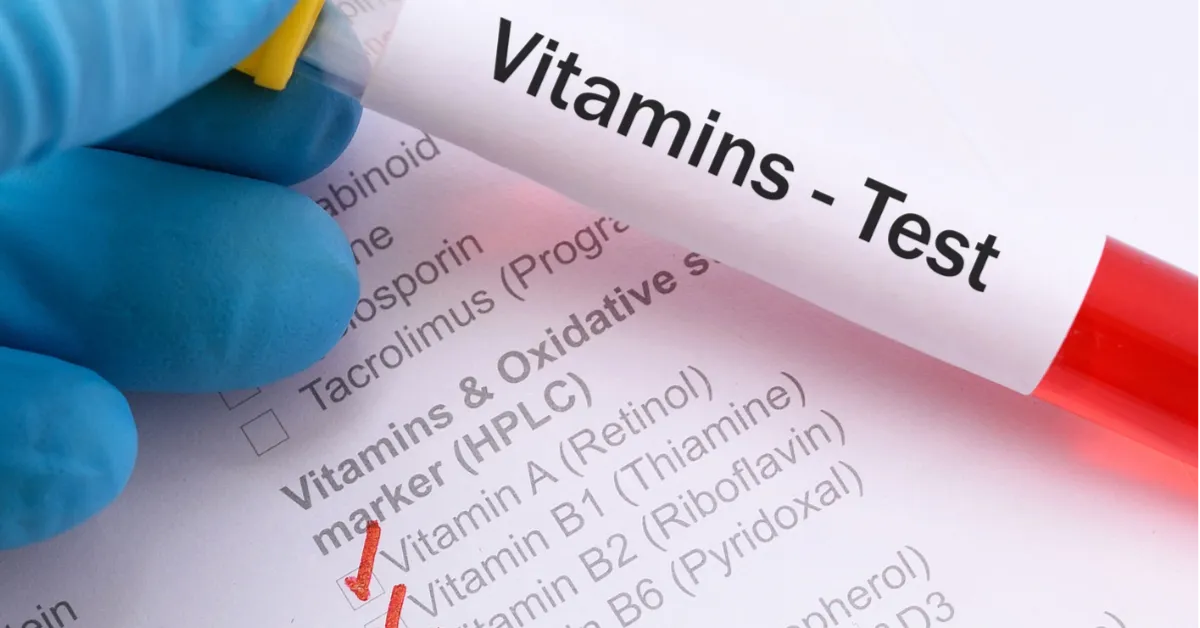FDA 21 CFR 101.9 Nutrition Labeling Vitamin Analysis
The FDA's 21 CFR 101.9 regulation mandates the accurate labeling of vitamins in food and dietary supplements to ensure consumers are informed about the nutritional content. Compliance with this regulation is essential for maintaining regulatory compliance and ensuring consumer trust.
Our laboratory provides comprehensive vitamin analysis services under FDA 21 CFR 101.9, focusing on ensuring that all vitamin claims made on nutrition labels are accurate and reliable. Our service covers a wide range of vitamins including A, C, D, E, K, B-complex vitamins, and others.
Our approach ensures precise measurement and quantification using validated methods to provide the most accurate results possible. This is crucial for maintaining regulatory compliance and ensuring consumer trust in your products.
| Applied Standards | Instruments Used |
|---|---|
| ASTM E1253-16 | HPLC (High Performance Liquid Chromatography) |
| ISO 17025:2017 | DHPLC (Dual Pump HPLC) |
| IUPAC Guidelines for Analytical Chemistry | Spectrophotometry |
The precision and accuracy of vitamin analysis are critical to the success of your products. Our laboratory uses state-of-the-art instruments such as HPLC, DHPLC, and spectrophotometers that are regularly calibrated to ensure consistent results.
Our team of experts ensures that all samples are prepared meticulously, using best practices for sample handling and storage to prevent any degradation or contamination that could affect the accuracy of the analysis. Our methodologies comply with international standards such as ASTM E1253-16 and ISO 17025:2017.
Once the samples are analyzed, we provide detailed reports that include all relevant information about the vitamin content in your products. This includes not only the amounts of each vitamin present but also any potential discrepancies between the actual levels and those stated on the product labels.
We also offer additional services such as stability studies to help you understand how long your vitamins remain stable under various conditions, which is vital for ensuring that the nutritional claims made on your products are accurate over time. Stability testing can provide valuable insights into the shelf life of your products and helps in formulating effective quality assurance programs.
Understanding the vitamin content in food items is crucial not only from a regulatory perspective but also because it impacts public health directly. Accurate labeling ensures that consumers make informed decisions about their dietary choices, which ultimately contributes to better overall health outcomes.
Why It Matters
Accurate vitamin analysis is fundamental in ensuring compliance with FDA regulations and maintaining consumer trust. The consequences of non-compliance can be severe, leading to legal actions, product recalls, and damage to brand reputation. By partnering with us for your FDA 21 CFR 101.9 vitamin analysis needs, you ensure that your products meet all necessary requirements.
Compliance with these regulations also plays a key role in protecting public health by ensuring that consumers receive the accurate information they need to make healthy dietary choices. This is particularly important for those who rely on dietary supplements or specific foods rich in certain vitamins.
Our comprehensive vitamin analysis services go beyond mere compliance; they provide valuable data that can inform product development and improvement efforts, helping manufacturers create products that better meet consumer needs while adhering strictly to regulatory guidelines.
- Enhances consumer trust
- Avoids legal issues
- Promotes public health
- Supports product quality
In summary, accurate vitamin analysis under FDA 21 CFR 101.9 is not just a requirement; it's an opportunity to build stronger relationships with your customers and contribute positively to public health.
Applied Standards
| Standard | Description |
|---|---|
| ASTM E1253-16 | American Society for Testing and Materials standard for vitamin analysis in beverages. |
| ISO 17025:2017 | International Organization for Standardization standard ensuring the competence of testing laboratories. |
| IUPAC Guidelines for Analytical Chemistry | Institute of Physics guidelines for accurate analytical chemistry methods. |
The standards we follow are designed to ensure that our analyses meet the highest levels of precision and accuracy. By adhering strictly to these internationally recognized guidelines, we guarantee that your vitamin analysis results will be reliable and consistent across multiple tests.
Our laboratory is equipped with the latest technology and employs highly trained professionals who stay updated on all relevant standards and best practices in the field. This commitment ensures that every aspect of our vitamin analysis service aligns perfectly with both current regulations and future trends.
Use Cases and Application Examples
- Determining compliance for new food items entering the market.
- Monitoring ingredient stability during product development phases.
- Verifying vitamin content claims made on packaging labels.
- Identifying potential discrepancies between actual nutrient levels and labeled values.
- Supporting post-market surveillance by detecting any changes in vitamin profiles over time.
| Use Case | Description |
|---|---|
| New Product Launch | Evaluating initial vitamin content to ensure accurate labeling. |
| Ingredient Review | Assessing the impact of new ingredients on overall vitamin profile. |
| Label Accuracy Check | Verifying that what is stated on labels matches reality. |
| Stability Study | Determining how long vitamins remain stable under different conditions. |
In addition to these specific applications, our vitamin analysis services play a crucial role in supporting broader strategic initiatives aimed at improving product quality and safety. Whether you're launching a new product or conducting routine checks on existing products, we have the expertise needed to provide reliable results every time.
Our analysis not only helps maintain regulatory compliance but also provides valuable insights that can drive innovation within your organization. By understanding exactly what vitamins are present in your products and how they behave over time, you can make informed decisions about product formulation, marketing strategies, and more.





